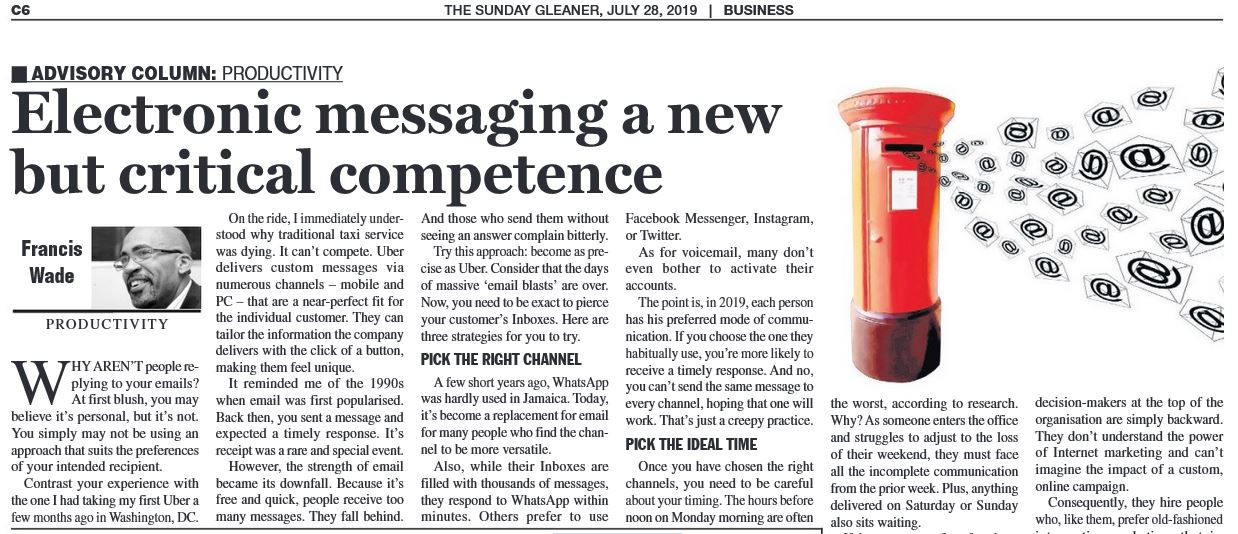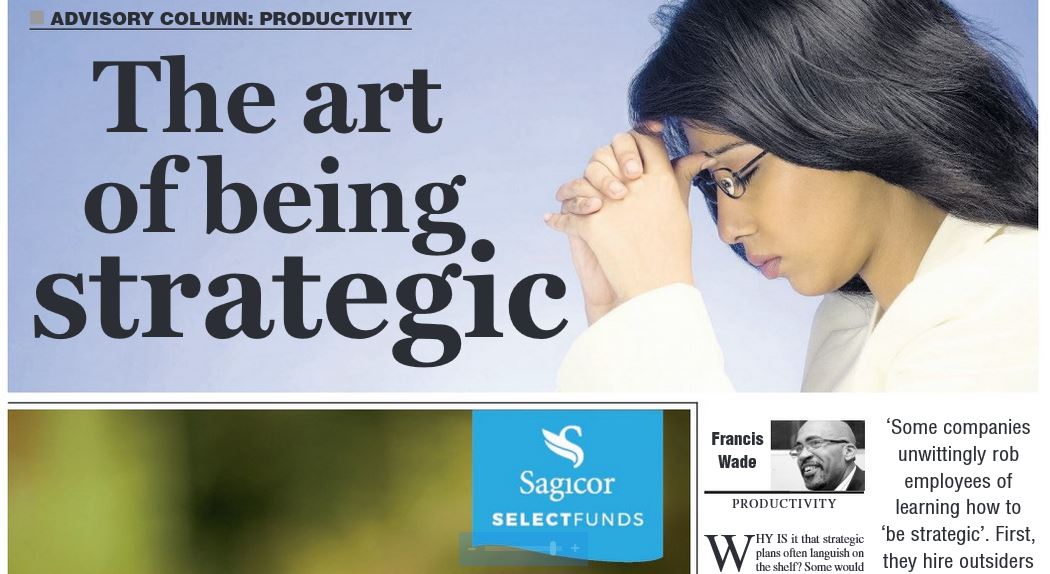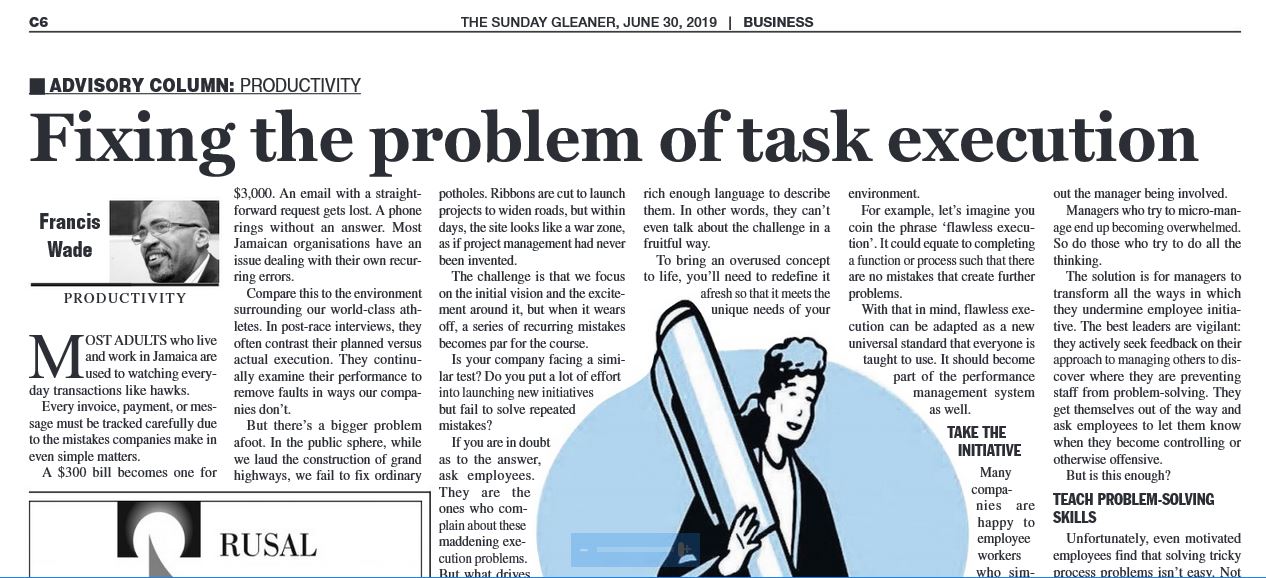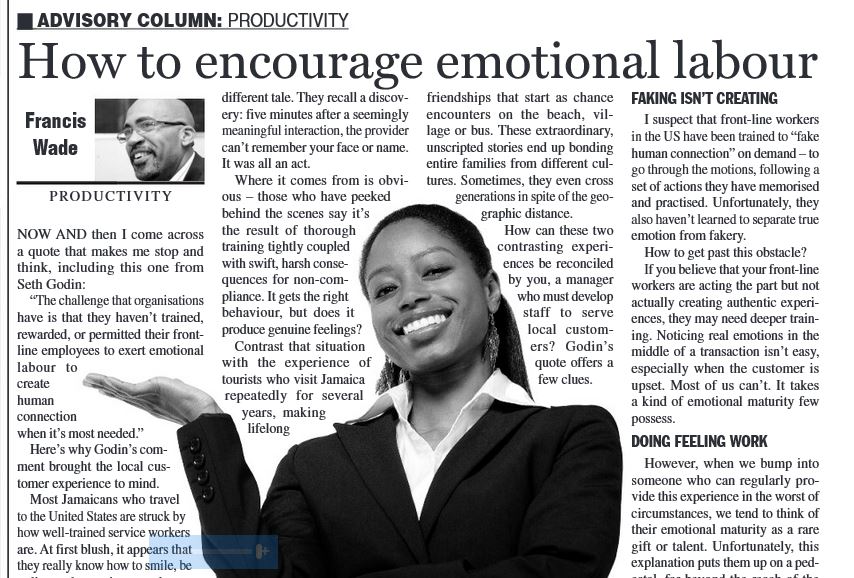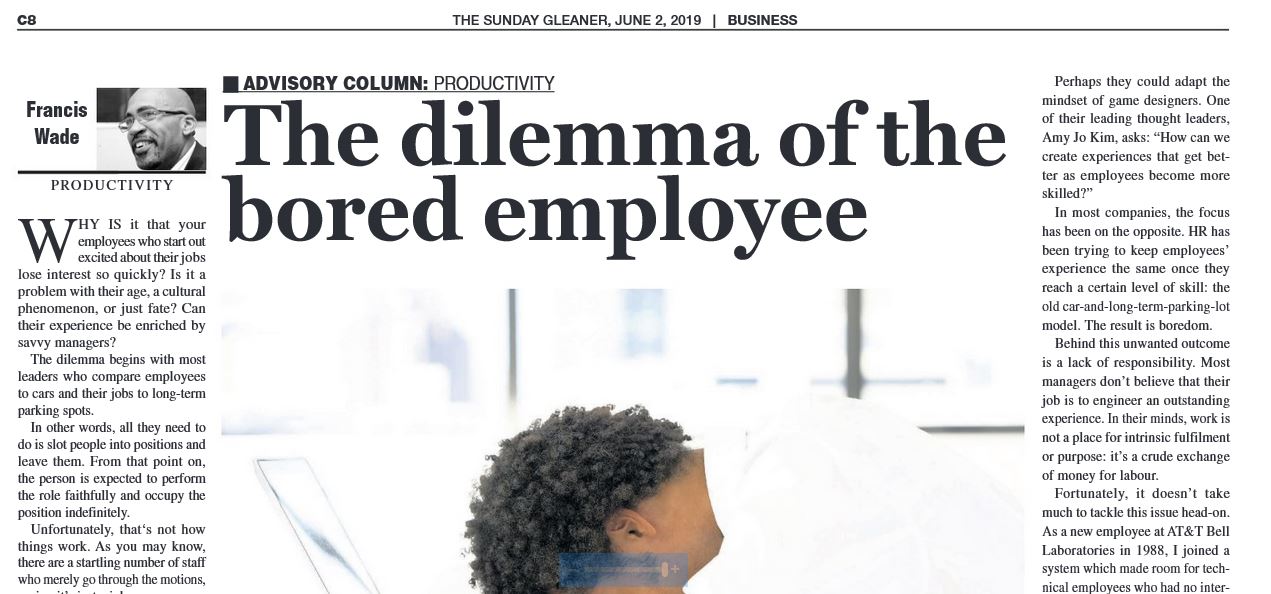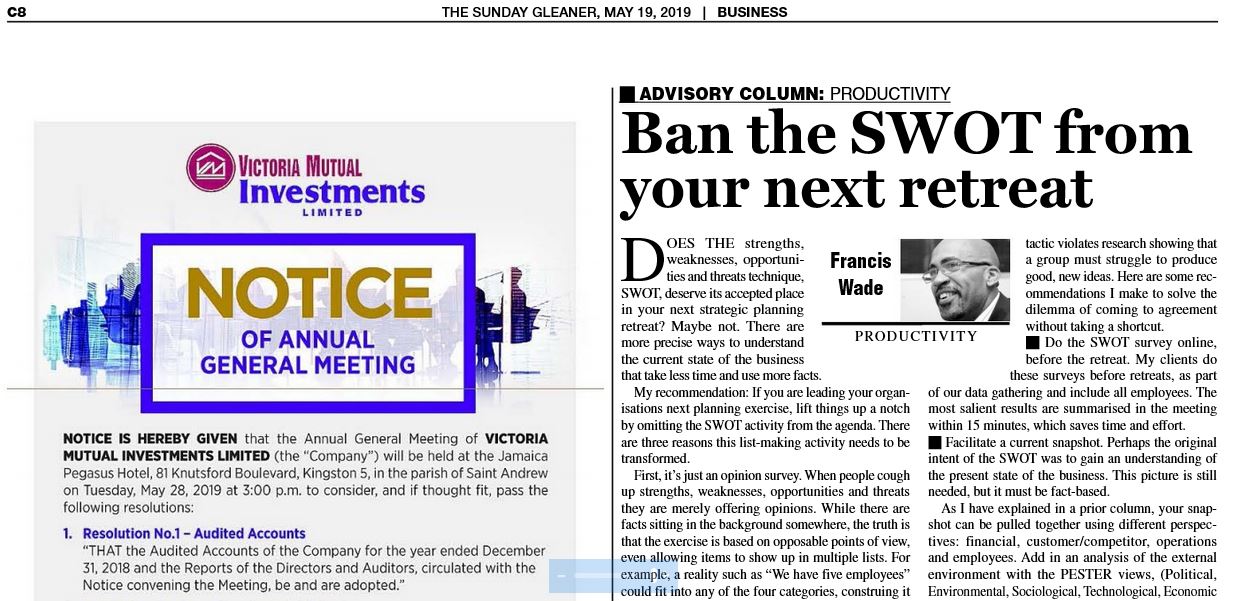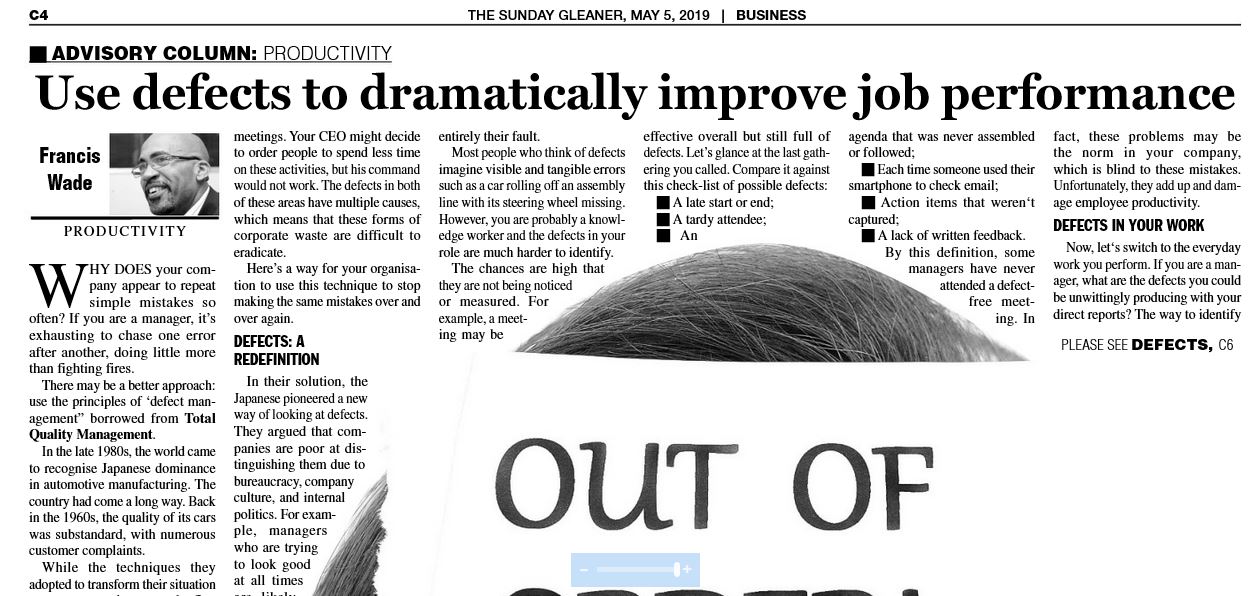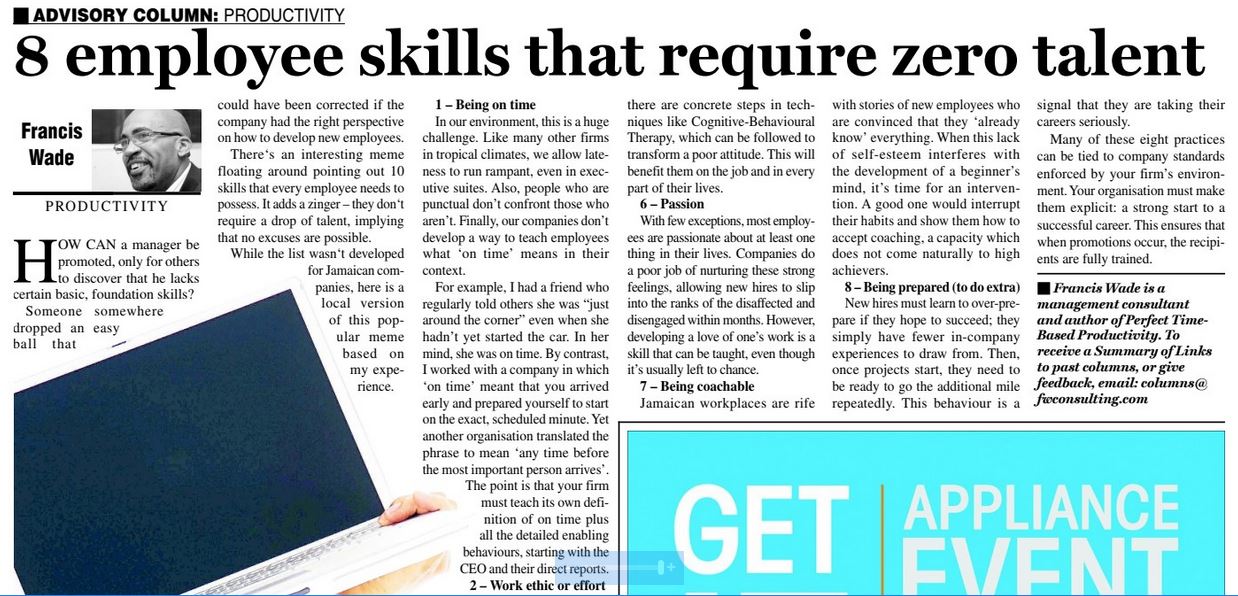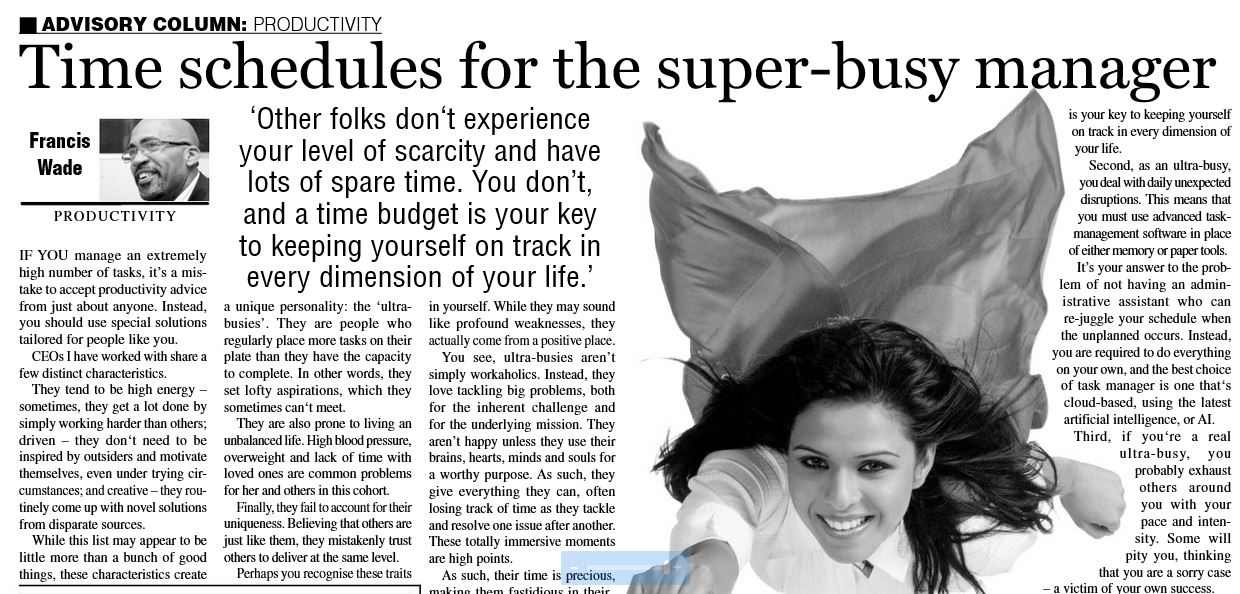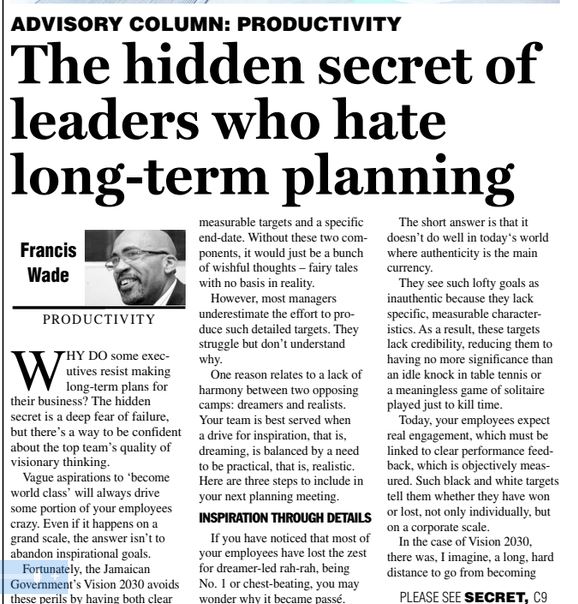Why aren’t people replying to your emails? At first blush, you may believe it’s personal, but it’s not. You simply may not be using an approach that suits the preferences of your intended recipient.
Contrast your experience with the one I had taking my first Uber a few months ago in Washington, DC. On the ride, I immediately understood why traditional taxi service was dying. It can’t compete. Uber delivers custom messages via numerous channels (mobile and PC) that are a near-perfect fit for the individual customer. He/she can tailor the information the company delivers with the click of a button, making them feel unique.
It reminded me of the 1990’s when email was first popularized. Back then, you sent a message and expected a timely response. It’s receipt was a rare and special event.
However, the strength of email became its downfall. Because it’s free and quick, people receive too many messages. They fall behind. And those who send them without seeing an answer complain bitterly.
Try this approach: become as precise as Uber. Consider that the days of massive “email blasts” are over. Now, you need to be exact to pierce your customer’s Inboxes. Here are three strategies for you to try.
1. Pick the right channel
A few short years ago, WhatsApp was hardly used in Jamaica. Today, it’s become a replacement for email for many people who find the channel to be more versatile.
Also, while their Inboxes are filled with thousands of messages, they respond to WhatsApp within minutes. Others prefer to use Facebook Messenger, Instagram or Twitter.
As for voicemail? Many don’t even bother to activate their accounts.
The point is, in 2019 each person has their preferred mode of communication. If you choose the one they habitually use, you’re more likely to receive a timely response. And no, you can’t send the same message to every channel , hoping that one will work. That’s just a creepy practice.
2. Pick the ideal time
Once you have chosen the right channels you need to be be careful about your timing. The hours before noon on Monday morning are often the worst, according to research. Why? As someone enters the office and struggles to adjust to the loss of their weekend, they must face all the incomplete communication from the prior week. Plus, anything delivered on Saturday or Sunday also sits waiting.
If they were away for a few days, it’s even worse. Upon their return, they are only in the mood for brutal culling and your message could get cut without ever being read.
Instead, use a version of the Golden Rule. Send messages as you would wish they were sent to you – on your preferred schedule. Do so skillfully and you’ll improve the odds dramatically that it won’t be lost.
Thankfully, scientists have given us some further clues. In a recent summary of 14 studies on the topic, Coschedule.com reported that Tuesday is the best weekday, followed by Thursday and Wednesday.
The optimal times of day? Just before lunch or before bed.
Unfortunately, these are US studies where work norms are somewhat different. You’ll have to do your own experiments to determine top results.
3. Use automated software
A surprising number of local organizations don’t collect any kind of contact information. As a consumer, this puzzles me. After all, once I have become a customer, I am quite likely to repeat the purchase, if only I were reminded via electronic messaging.
My sense is that the practice is uncommon because decision-makers at the top of the organization are simply backward. They don’t understand the power of internet marketing and can’t imagine the impact of a custom, online campaign. Consequently, they hire people who, like them, prefer old-fashioned interruption-marketing i.e. advertisements in print, television, radio and billboard. The poor decisions they make aren’t questioned.
Fortunately, automated messaging on both email and social networks is relatively inexpensive. They also allow you to collect data easily, often putting the onus on customers to join via your landing pages.
Furthermore, once they join your network, you’re able to track their behavior and learn a great deal about their individual preferences. Once you analyze this information, you can understand how to speak to their needs in increasingly surgical ways.
The fact is, if your company isn’t using these tools and knowledge you are setting yourself up for disruption: the moment when a competitor figures out that your business is stale. Don’t be like the taxi companies who may never catch up to Uber. Adjust your digital communication to fit your customer’s needs.
The Art of Being Strategic
Why is it that strategic plans often languish on the shelf? Some would say it’s a matter of lazy executives but experience shows that it has more to do with creating the right context from the start.
A client I work with has an idea: “let’s put up our own website.” At first blush, it makes sense. Every organisation has one. It’s an easy, inexpensive way to let the world know you exist.
However, a brief survey of websites of similar organisations reveals an inconvenient truth: they are all embarrassingly stale. The layouts look tired. Not a single site is current, or has been updated in ages. Whoever had the original vision has long gone, leaving behind an obsolete artefact.
But it’s likely that when the idea was first pursued, people were excited. They invested personal energy in the project and when it was done, felt satisfied that their vision had come to life.
Unfortunately, they also made a deadly mistake. In their minds, the purpose of the activity was to produce an object (a website) versus to launch a process (a way to keep staff in touch with the public.) In other words, the context they created for the project was limited.
This particular error happens every day. Imagine the typical family. The kids want to adopt a dog, but their parents refuse. The fact is, the older, wiser heads know that owning a pet is more than possessing an animal object. It also means engaging in a process of feeding, exercising and cleaning that takes time and money. They understand that this job is likely to fall into their laps when their children lose interest.
As adults, they see the real cost.
This also happens in strategic planning retreats when companies try to compress the activity into a single day. It’s possible to create a report in this time-frame if the team focuses solely on producing unlimited visions of the future. They walk away feeling inspired, as if they have just adopted a dog or launched a website.
However, the typical second day is usually focused on adding in real-life constraints – the true cost. Once they are included in the plan, tradeoffs must be considered which lead to the team making difficult decisions. Among them is a choice to kill certain initiatives.
The sad reality? There just isn’t enough time, manpower, money or energy to accomplish all the goals set on day one. That initial mood of boundless creativity must be balanced.
Apart from spending two days on this activity, what else is required to be strategic versus just producing a plan?
1. A Context of “Being Strategic”
Paradoxically, the main output of each planning exercise may not be the plan. Perhaps, it’s better understood as the start of a process which engages everyone.
In this process, a new paradigm is introduced which reshapes everyday work. Now, instead of simply doing their job, an employee is doing so for a greater purpose which inspires them.
This means that the plan should be changed as often as necessary in order to play its role as a guide for daily actions. These updates keep it fresh and relevant.
Some companies unwittingly rob employees of learning how to “be strategic.” First, they hire outsiders to write their strategy. When the final document (the object) is handed over, the company finds itself unable to execute because no-one possesses the requisite way of being to be successful. It disappeared out the door with the consultants.
2. Make Concrete Commitments
In prior columns I accused executives of failing to treat their time with the same level of rigour as they do their budgets. Consequently, their strategic plans are unrealistic and are treated as if they can all drop their overfull schedules at a moment’s notice.
One antidote is to book the same time in each executive’s calendar for implementation: e.g. Monday morning from 9-12 am. Doing so means cancelling or delegating existing commitments. It’s a way to ensure that the new projects and processes in the plan have a chance of survival in the real, post-retreat world.
3. Make Behaviour and Process Changes
Pay attention to those strategic initiatives which are as painful to implement as the challenge of learning to write cursive with your non-dominant hand. At both the individual and corporate levels, old habits and processes will assert themselves, resisting the planned changes.
Instead, put in place new systems for performance management, rewards, recognition, training and automation. Hardwire these improvements to reduce the possibility of failure.
Part of being strategic is acknowledging all these obstacles and finding ways to work around them. Admittedly, they are harder than simply producing a document but they will ensure that your plan is realistic and provide a unique pathway to future success.
http://jamaica-gleaner.com/article/business/20190714/francis-wade-art-being-strategic
How to Fix Execution Problems
Most adults who live and work in Jamaica are used to watching everyday transactions like hawks. Every invoice, payment or message must be tracked carefully due to the mistakes companies make in even simple matters.
A $300 bill becomes one for $3000. An email with a straightforward request gets lost. A phone rings without an answer. Most Jamaican organizations have an issue dealing with their own recurring errors.
Compare this to the environment surrounding our world-class athletes. In post-race interviews, they often contrast their planned versus actual execution. They continually examine their performance to remove faults in ways our companies don’t.
But there’s a bigger problem afoot. In the public sphere, while we laud the construction of grand highways, we fail to fix ordinary potholes. Ribbons are cut to launch projects to widen roads, but within days the site looks like a war-zone, as if project management were never invented.
The challenge is that we focus on the initial vision and the excitement around it, but when it wears off, a series of recurring mistakes become par for the course.
Is your company facing a similar test? Do you put a lot of effort into launching new initiatives but fail to solve repeated mistakes?
If you are in doubt as to the answer, ask employees. They are the ones who complain about these maddening execution problems. But what drives them nuts is not the issue itself, but the manager who chases symptoms rather than causes.
The plain truth is that complex issues require people to cross functional or hierarchical boundaries. This means they must put themselves at risk, but it’s far easier to fire-fight and complain than to be brave.
This managerial cowardice allows execution problems to continue.
If this phenomenon sounds familiar, how can you transform the situation?
1. Re-Define Execution
The problem with a common term like execution is everyone thinks they know what it means and therefore uses it loosely. After a while, it loses whatever meaning it ever had.
Research shows that sometimes issues recur when companies don’t have a rich enough language to describe them. In other words, they can’t even talk about the challenge in a fruitful way.
To bring an over-used concept to life, you’ll need to redefine it afresh so it meets the unique needs of your environment.
For example, let’s imagine you coin a phrase: “flawless execution.” It could equate to “completing a function or process such that there are no mistakes which create further problems.”
With that in mind, “flawless execution” can be adapted as a new universal standard that everyone is taught to use. It should become part of the performance management system as well.
2. Own Execution
Many companies are happy to employee workers who simply take orders without taking any additional initiative. In other words, the manager’s job is to think and direct, while those underneath them should merely follow.
In modern organizations, this common approach leads to disaster.
While passive employees may be able to solve simple problems, challenges which require some thinking and coordination with others demand more. In other words, staff must have the power to take the initiative without the manager being involved.
Managers who try to micro-manage end up becoming overwhelmed. So do those who try to do all the thinking.
The solution is for managers to transform all the ways in which they undermine employee initiative. The best leaders are vigilant: they actively seek feedback on their approach to managing others to discover where they are preventing staff from problem-solving. They get themselves out of the way, and ask employees to let them know when they become controlling or otherwise offensive.
But is this enough?
3. Teaching Problem-Solving Skills
Unfortunately, even motivated employees find that solving tricky process problems isn’t easy. Not only are excellent communication skills required, but a capacity for critical thinking and data analysis are a must.
Most employees are weak in these areas and lack training. A smart leader will develop these competences in a systematic fashion, knowing that as they do so, they help staff solve recurring execution problems on their own.
In other words, it’s the only way to implement a new ideal like “flawless execution”.
Given the fact that our athletes and coaches use these techniques every day to achieve world class standards, it makes sense for our organizations to try to do the same. Even though it’s more difficult to do so in groups of people, the rewards are more far-reaching.
http://jamaica-gleaner.com/article/business/20190630/francis-wade-fixing-problem-task-execution
How to Help Employees Exert Emotional Labour
The challenge that organizations have is that they haven’t trained, rewarded or permitted their frontline employees to exert emotional labor to create human connection when it’s most needed. Seth Godin
Now and then I come across a quote which makes me stop and think. Here’s why this one brought the local customer experience to mind.
Most Jamaicans who travel to the United States are struck by how well-trained service workers are. At first blush, it appears that they really know how to smile, be polite and seem interested.
However, those who end up staying to live in North America tell a different tale. They recall a discovery: five minutes after a seemingly meaningful interaction the provider can’t remember your face or name. It was all an act.
Where it comes from is obvious – those who have peeked behind the scenes say it’s the result of thorough training tightly coupled with swift, harsh consequences for non-compliance. It gets the right behaviour, but does it produce genuine feelings?
Contrast that situation with the experience of tourists who visit Jamaica repeatedly for several years, making lifelong friendships which start with chance encounters on the beach, village or bus. These extraordinary, unscripted stories end up bonding entire families from different cultures. Sometimes, they even cross generations, in spite of the geographic distance.
How can these two contrasting experiences be reconciled by you, a manager who must develop staff to serve local customers? Godin’s quote offers a few clues.
1. Faking isn’t Creating
I suspect that frontline workers in the US have been trained to “fake human connection” on demand – to go through the motions, following a set of actions they have memorized and practiced. Unfortunately, they also haven’t learned to separate true emotion from fakery.
How to get past this obstacle?
If you believe that your front-line workers are acting the part but not actually creating authentic experiences, they may need deeper training. Noticing real emotions in the middle of a transaction isn’t easy, especially when the customer is upset. Most of us can’t: it takes a kind of emotional maturity few possess.
2. Doing Feeling Work
However, when we bump into someone who can regularly provide this experience in the worst of circumstances, we tend to think of their emotional maturity as a rare gift or talent. Unfortunately, this explanation puts them up on a pedestal, far beyond the reach of the unlucky majority.
Godin implies that this thinking is false.
“Emotional labour” is really what’s missing, he explains. It’s the trained effort most companies’ leaders just can’t be bothered to develop – the expense is too high. Their lack of care begins with haphazard hiring and continues with non-existent onboarding. Employees who receive this basic training are left to their own devices, never given the tools to produce emotional results. Then, when problems occur, most managers simply blame the employee: they fail to accept responsibility.
But Godin goes further: he hints that many companies don’t even “permit” their front-line employees to provide emotional labour. They actually make it hard.
Have you ever received a quiet act of kindness from an employee who put themselves in harm’s way to make an exception in your case? That’s someone who is working around the limits implemented by a blind, callous leadership.
3. Identifying Moments
These subversives are not only brave, but wise. They can tell when a human connection is most needed and act decisively to provide it.
But they aren’t just interesting: these moments are extraordinary opportunities to create lasting loyalty. Perhaps they explain why these tourists return to visit their newfound “family” in Jamaica. Their initial link was so positive, and so unexpectedly real, that they end up feeling closer to a Jamaican front-line worker than their actual neighbours or office colleagues.
Can workers be trained to identify these key moments in a customer’s experience?
They can, but if your employees have childhoods pock-marked with trauma, it’s much harder to do so. Unfortunately, given the low pay of our service providers, many have experienced such hardships and won’t get over them on their own.
If management steps in and provides the counselling, training and coaching needed to move past these obstacles, everyone benefits. The fact is, employees who are being trained to emotionally labour on behalf of customers who need a human connection need to deal with their own wounds first.
This puts them in the driver’s seat: able to respond to the customer without their history getting in the way. Now, they can deliberately create the kind of deep loyalty customers enjoy but rarely experience. It’s emotional labor which provides a win for all concerned.
http://jamaica-gleaner.com/article/business/20190616/francis-wade-how-encourage-emotional-labour
The Dilemma of the Bored Employee
Why is it that your employees who start out excited about their jobs lose interest so quickly? Is it a problem with their age, a cultural phenomena or just fate? Can their experience be enriched by savvy managers?
The dilemma begins with most leaders who compare employees to cars and their jobs to long-term parking spots. In other words, all they need to do is slot people into positions and leave them. From that point on, the person is expected to perform the role faithfully and occupy the position indefinitely.
Unfortunately, that‘s not how things work. As you may know, there are a startling number of staff who merely go through the motions: “It’s just a job.” Long gone are the challenges which kept them up at night. All that’s left is a routine they can now do without thinking.
Predictably, they turn their attention to other life demands. They raise children to pass exams with top grades. They sign up for marathons. They become deacons in their churches and volunteers in community organizations. While there’s a great deal of good they accomplish in all these other areas, their career remains stagnant: the same job from one day to the next. A few convince themselves that the steady salary is worth the deadening sacrifice. Others refuse. They walk away, quitting to find a different career or start their own company.
Meanwhile, executives in your firm probably remain clueless about the real depth of disengagement: the high percentage who give their work-life the bare minimum. Understanding why employees are more dissatisfied than ever can help you produce a breakthrough culture.
The New Employee
Today’s entering staff member is often surprised at the stale environment found inside most companies. The truth is, little has changed over the years. People at all levels are still stuck in the car-and-parking-spot frame of mind.
Why are they shocked? They have been raised in a world of high engagement in which social media, entertainment and games occupy a great deal of their personal energy. Each of these platforms is engineered to grab hold of a user’s attention and keep it for extended periods of time.
By comparison, most jobs in the workplace seem to be designed to lose, disrupt or even destroy attention. It’s tempting to think this has something to do with technology: instead, it’s all about intention.
Creators of highly engaged online environments realize they are in a competition with other experiences. With every bit and byte, they intend to keep users interested and use attention as a measure of success. The makers of Facebook, Twitter and Instagram don’t want you to slip away.
Unfortunately, there are probably few managers in your company who see their challenge in the same way. They fail to recognize that “experience design” is part of their job, instead pretending as if nothing has changed over the years.
The outcome? Employees who can hardly last 15 minutes alone or in a meeting without reflexively searching their smartphones for something better.
A New Challenge
Most of your fellow managers probably just shrug their shoulders, complaining. For them, the point of engaging staff is not to entertain them, but make them productive.
Perhaps they could adapt the mindset of game designers. One of their leading thought leaders, Amy Jo Kim, asks: “How can we create experiences that get better as employees become more skilled?”
In most companies, the focus has been the opposite. HR has been trying to keep employees’ experience the same once they reach a certain level of skill: the old car-and-long-term-parking-lot model. The result is boredom.
Behind this unwanted outcome is a lack of responsibility. Most manager’s don’t believe that their job is to engineer an outstanding experience. In their minds, work is not a place for intrinsic fulfillment or purpose: it’s a crude exchange of money for labour.
Fortunately, it doesn’t take much to tackle this issue head-on. As a new employee at AT&T Bell Laboratories in 1988, I joined a system which made room for technical employees who had no interest in becoming supervisors. A technical ladder allowed many to be promoted and recognized without having the burden of direct reporting relationships.
At a micro level, your company can train managers to develop detailed ladders of skills. Imagine if, at any moment in time, your employees could know exactly which rung they occupy. Furthermore, they would also be able to pinpoint which skills they are developing. This way, they know when their next personal improvement target happens to be.
This form of career gamification can engage even long-term staff, blocking the default – boredom – which thwarts your company’s goals.
http://jamaica-gleaner.com/article/business/20190602/francis-wade-dilemma-bored-employee
Why It‘s Time to Ban the SWOT from Your Next Retreat
Does the Strengths, Weaknesses, Opportunities and Threats (SWOT) technique deserve it‘s accepted place in your next strategic planning retreat? Maybe not. There are more precise ways to understand the current state of the business that take less time and use more facts.
My recommendation: If you are leading your organization‘s next planning exercise, lift things up a notch by omitting the SWOT activity from the agenda. There are three reasons why this list-making activity needs to be transformed.
1. It’s just an opinion survey
When people cough up strengths, weaknesses, opportunities and threats they are merely offering opinions. While there are facts sitting in the background somewhere, the truth is that the exercise is based on opposable points of view, even allowing items to show up in multiple lists. For example, a reality such as “We have five employees” could fit into any of the four categories, construing it as either a “pro” or a “con”.
Given the fact that anyone can have an opinion about anything, merely accumulating these arbitrary points of view is a low-quality exercise. Discussing and debating them at length only reduces your meeting to a talk-shop.
2. It anchors the team in old thinking
The purpose of a well-designed retreat is to establish a clean break from the past. By contrast, the SWOT activity does the very opposite. Why? It merely asks people to rehash old, familiar lines of thinking. This reinforces the emotional link to whatever former strategy happened to be in place, which in turn, makes it harder to create a fresh one.
For example, imagine what happens when the team lists the fact that having five employees is a weakness. Now, it’s difficult to see it as a strength, which it may be in the context of a fast-changing industry. Stating the old concept as the solid truth only stands in the way of realizing a new paradigm.
3. It takes too much time
As the designer of the retreat, you are probably painfully aware that time is a scarce commodity. A SWOT survey gets people talking, but it requires several hours of precious space to collect the group’s point of view, collate and present it. This time could be better spent doing deeper dives into hard data.
Given these three shortcomings (which many executives already quietly realize) why does the exercise continue to be so popular? As a retreat organizer, you may have the answer: because it‘s easy.
Not only is a choice to do the activity never challenged, those who participate are unlikely to challenge each other during the exercise. Unfortunately, this avoidance tactic violates research showing that a group must struggle to produce good, new ideas. Here are some recommendations I make to solve the dilemma of coming to agreement without taking a shortcut.
1. Do the SWOT Survey Online, Before the Retreat
My clients do these surveys before retreats, as part of our data gathering and include all employees. The most salient results are summarized in the meeting within 15 minutes, which saves time and effort.
2. Facilitate a Current Snapshot
Perhaps the original intent of the SWOT was to gain an understanding of the present state of the business. This picture is still needed, but it must be fact-based.
As I have explained in a prior column, your snapshot can be pulled together using different perspectives: financial, customer/competitor, operations and employees. Add in an analysis of the external environment with the PESTER views, (Political, Environmental, Sociological, Technological, Economic and Regulatory), taking special note that technology is emerging as the most critical outside factor.
At first glance, this may seem like a dull recitation of boring data. However, the point is to understand (as a team) the story the facts are telling. Inevitably, this will include a robust discussion of various strengths, weaknesses, opportunities and threats but there‘s no need to group them. Instead, let the information do the talking, rather than hasty opinions, and weave the four SWOT themes into the narrative. Invariably, the tale the data tells is nuanced, filled with ups and downs, polarities, discrepancies and paradoxes. Only a team of insiders with a deep appreciation of the organization and their individual speciality can fully pull it together. Certainly, an outside consultant can’t.
Of course, there are companies which attempt to skip the snapshot altogether and jump right into planning the future. Unfortunately, doing so yields pipe dreams with no foundation in reality. It reduces the trust needed to make a risky move.
In summary, it takes a concerted effort to have everyone on the team see the company’s current position from a joined-up point of view. However, it’s more than a team-building activity: It’s also an evaluation of the status quo which is the first step to carving out a transformative strategy. Don’t block a big change which needs to happen with a costly SWOT mistake.
http://jamaica-gleaner.com/article/business/20190519/francis-wade-ban-swot-your-next-retreat
P.S.
Here is some interesting research found a few years after my article was written: SWOT Analysis: It’s Time for a Product Recall
How to Use Defects to Dramatically Improve Performance
Why does your company appear to repeat simple mistakes so often? If you are a manager, it’s exhausting to chase one error after another, doing little more than fighting fires. There may be a better approach – use the principles of “defect management” borrowed from Total Quality Management.
In the late 1980’s the world came to recognize Japanese dominance in automotive manufacturing. The country had come a long way: back in the 1960’s the quality of its cars were sub-standard with numerous customer complaints. While the techniques they adopted to transform their situation weren’t new, they were the first to apply quality improvement and process management in a rigorous, systematic way. The resulting turnaround appeared miraculous to the rest of the world, resulting in manufacturers adopting their techniques on a large scale.
One of the innovations they introduced was a peculiar way to uncover operational problems that only occur in small numbers.
If your company has over 100 employees, it has the same challenge: it’s made up of intricate, cross-organizational processes which are hard to diagnose. In other words, tricky issues persist because the link between cause and effect isn’t easy to determine. Take, for example, two of my favorite problems: email and meetings. Your CEO might decide to order people to spend less time on these activities, but his command wouldn‘t work. The defects in both of these areas have multiple causes, which means that these forms of corporate waste are difficult to eradicate.
Here’s a way for your organization to use this technique to stop making the same mistakes over and over again.
1. “Defects” – A Re-Definition
In their solution, the Japanese pioneered a new way of looking at defects. They argued that companies are poor at distinguishing them due to bureaucracy, company
culture and internal politics. For example, managers who are trying to look good at all times are likely to disown their defects.
It’s not entirely their fault.
Most people who think of defects imagine visible and tangible errors, such as a car rolling off an assembly line with its steering wheel missing. However, you are probably a knowledge worker and the defects in your role are much harder to identify. The chances are high that they are not being noticed or measured.
For example, a meeting may be effective overall, but still full of defects. Let’s glance at the last gathering you called. Compare it against this checklist of possible defects.
– a late start or end
– a tardy attendee
– an agenda which was never assembled or followed
– each time someone used their smartphone to check email
– action items which weren‘t captured
– a lack of written feedback
By this definition, some managers have never attended a defect-free meeting. In fact, these problems may be the norm in your company, which is blind to these mistakes. Unfortunately, they add up and damage employee productivity.
2. Defects in Your Work
Now, let‘s switch to the everyday work you perform. If you are a manager, what are the defects you could be unwittingly producing with your direct reports? The way to identify them is to find the shortfalls; the places where standards aren’t being met.
For example, if a performance review conversation with your employee doesn‘t go well, consider that to be a defect. You probably aren‘t measuring the number of times this occurs, but if you were to do so, you could actually launch increasingly deep improvement efforts.
That would mean resisting the temptation to bury the defect inside a string of successes. This happens when you argue: “Yeah, but how about the other times when I don’t make mistakes. Shouldn’t I get credit for my 99% success-rate?”
In this context, the correct answer is “No”. There‘s no need to be defensive. Defects are not important because they make people feel bad. Instead, they are a critical part of your efforts to uncover the details which aren‘t working. They help you craft precise interventions which produce superior performance.
If you think that this isn‘t achievable in small increments, think again. The Japanese industrial miracle was built on steady tiny gains, accompanied by knowledge accumulated over time. It gave their companies a solid competitive advantage over others who were boasting to themselves about their “99% performance.”
It’s ironic: the way to continue improving is to start by calling out defects. This puts the focus where it belongs and prevents people from hiding behind the numbers. Fail to do so and it won’t be long before a comfortable mediocrity sets in which affects productivity at every level. Committing to removing defects takes great courage, but it’s one of the keys to competitive advantage.
8 Skills Employees Need that Require Zero Talent
How can a manager be promoted, only for others to discover that he lacks certain basic, foundation skills? Someone, somewhere dropped an easy ball that could have been corrected if the company had the right perspective on how to develop new employees.
There‘s an interesting meme floating around pointing out 10 skills that every employee needs to possess. It adds a zinger: they don‘t require a drop of talent, implying that no excuses are possible. While the list wasn‘t developed for Jamaican companies, here is a local version of this popular meme based on my experience.
#1 – Being On Time
In our environment, this is a huge challenge. Like many other firms in tropical climates, we allow lateness to run rampant, even in executive suites. Also, people who are punctual don‘t confront those who aren’t. Finally, our companies don’t develop a way to teach employees what “on time” means in their context.
For example, I had a friend who regularly told others she was “just around the corner” even when she hadn’t yet started the car. In her mind, she was “on time.” By contrast, I worked with a company in which “on-time” meant that you arrived early and prepared yourself to start on the exact, scheduled minute. Yet another organization translated the phrase to mean “anytime before the most important person arrives.”
The point is that your firm must teach its own definition of “on time” plus all the detailed enabling behaviors, starting with the CEO and her direct reports.
#2 – Work Ethic/Effort
New employees are often slow to appreciate that for every corporate skill, there is a ladder of accomplishment. Unfortunately, those who are unaware, usually occupy the lowest rung. This is no matter of disrespect.
The fact is, if they are taught the existence of higher skills and how to achieve them, they can become inspired.Their objective, before they are confirmed as full-time staff, should be to show they have climbed the rungs of some key skills. For example, a summer student should be able the demonstrate an unbroken string of on-time arrivals at work. These may seem to be too easy, but don’t under-estimate the effort required to learn new behaviors and apply them consistently.
#3 – Body Language
Have you ever seen a young person slouch in his office chair, apparently ready to doze off? Newly hired workers just aren’t taught that their body language influences others. The impact on customers, colleagues and managers is part of what they will be held accountable for.
#4 – Energy
Whereas it may not have been cool to be an eager-beaver in their prior lives, young employees need to learn that the tables are now turned. How they get work done is vitally important, and they aren‘t “allowed” to have a bad day that drags down others. Every hour is intended to be an opportunity for enthusiasm and engagement, and they must learn to manage their sleep and nutrition to accomplish this goal. Habitually overcoming the “I-don‘t-feel-like-it” blues is a vital new capacity to develop.
#5 – Attitude/Resilience
This is perhaps a nebulous skill but companies need to go beyond the level of cliches and define it clearly. Science has shown that there are concrete steps in techniques like Cognitive-Behavioural Therapy which can be followed to transform a poor attitude. This will benefit them on the job and in every part of their lives.
#6 – Passion
With few exceptions, most employees are passionate about at least one thing in their lives. Companies do a poor job of nurturing these strong feelings, allowing new hires to slip into the ranks of the disaffected and disengaged within months. However, developing a love of one’s work is a skill that can be taught, even though it’s usually left to chance.
#7 – Being CoachableJamaican workplaces are rife with stories of new employees who are convinced that they “already know” everything. When this lack of self-esteem interferes with the development of a “Beginner’s Mind” it’s time for an intervention. A good one would interrupt their habits and show them how to accept coaching, a capacity which does not come naturally to high achievers.
#8 – Being Prepared (To Do Extra)
New hires must learn to over-prepare if they hope to succeed; they simply have fewer in-company experiences to draw from. Then, once projects start, they need to be ready to go the additional mile repeatedly. This behavior is a signal that they are taking their careers seriously.
Many of these eight practices can be tied to company standards enforced by your firm’s environment. Your organization must make them explicit: a strong start to a successful career. This ensures that when promotions occur, the recipients are fully trained.
Time-Schedules for the Super-Busy Manager
If you manage an extremely high number of tasks, it’s a mistake to accept productivity advice from just about anyone. Instead, you should use special solutions tailored for people like you.
CEO‘s I have worked with share a few distinct characteristics. They tend to be:-
High energy – Sometimes, they get a lot done by simply working harder than others.
Driven – They don‘t need to be inspired by outsiders: They motivate themselves even under trying circumstances.
Creative – They routinely come up with novel solutions from disparate sources.
While this list may appear to be little more than a bunch of “good things”, these characteristics create a unique personality: an “Ultra-Busy“. She is someone who regularly places more tasks on her plate than she has the capacity to complete. In other words, she sets lofty aspirations which she sometimes can‘t meet.She is also prone to live an unbalanced life. High blood pressure, overweight and lack of time with loved ones are common problems for her and others in this cohort.
Finally, she fails to account for her uniqueness. Believing that others are just like her, she mistakenly trusts them to deliver at the same level.
Perhaps you recognize these traits in yourself. While they may sound like profound weaknesses, they actually come from a positive place. You see, Ultra-Busys aren’t simply workaholics. Instead, they love tackling big problems, both for the inherent challenge and for the underlying mission. They aren’t happy unless they use their brains, hearts, minds and souls for a worthy purpose. As such, they give everything they can, often losing track of time as they tackle and resolve one issue after another. These totally immersive moments are high points.
As such, their time is precious, making them fastidious in their choice of productivity habits and aids. Always on the lookout for the latest improvements they need to heed a word of caution: much of the advice floating around isn‘t actually meant for them. Here’s why.
During adolescence, each one of us starts to teach ourselves how to use our memory to manage our personal task-load. Then, as we grow older, we search for better methods to handle more tasks.
A few people – The Ultra-Busys – take this to an extreme. Their love of big results requires them to manage a monumental task-load. Unlike others who see added tasks as a burden, they willingly create lots of them in order to make quicker progress towards their life-goals.However, most productivity advice doesn‘t account for this difference. Instead, it‘s geared for the average person who simply wants to survive each day using a few handy coping mechanisms.
But if you happen to be an Ultra-Busy, what methods should you use? My research reveals the following.
1. Use a Time-Scarcity Schedule
Most people adopt a calendar exclusively to track appointments, but this technique doesn‘t work for Ultra-Busys. Instead, you must use your calendar to plan all your hours, including sleep, weekends and holidays. In this way, it helps you confront the reality of a 24-hour day, especially when you reach the end of an activity and need to choose which one to do next.Other folks don‘t experience your level of scarcity and have lots of spare time. You don’t, and a time-budget is your key to keeping yourself on track in every dimension of your life.
2. Use Flexible Tools to Combat Disruptions
As an Ultra-Busy, you deal with unexpected, daily disruptions. This means that you must use advanced task management software in place of either memory or paper tools.It’s your answer to the problem of not having an administrative assistant who can re-juggle your schedule when the unplanned occurs. Instead, you are required to do everything on your own and the best choice of task manager is one that‘s cloud-based, using the latest Artificial Intelligence.
3. Embrace Your Agency
If you‘re a real Ultra-Busy, you probably exhaust others around you with your pace and intensity. Some will pity you, thinking that you are a sorry case…a victim of your own success.However, deep down you know that nothing could be further from the truth. You accept and appreciate your own agency – each task you undertake is one you created freely, from far inside your commitments.
So don‘t be alarmed when others fail to understand. Instead, find the few who are like you and learn from them. You can take the free training I offer to Ultra-Busys at ScheduleU.org – The School for Scheduling Everything.
Your job is to stay true to your calling and its consequence: the incredible time demands you put on yourself. Avoid average advice and uncover the thinking that fits your extraordinary commitments.
http://jamaica-gleaner.com/article/business/20190407/francis-wade-time-schedules-super-busy-manager
Why Some Leaders Hate Long-Term Planning
Why do some managers hate to make long-term plans for their business? The hidden secret is their deep fear of failure but there‘s a way to be confident about their team’s quality of visionary thinking.
Vague aspirations to “Become World-Class” will always drive some portion of your employees crazy. Even if it happens on a grand scale, the answer isn’t to abandon visionary thinking.
Fortunately, the Jamaican Government’s Vision 2030 avoids these perils by having both clear measurable targets and a specific end-date. Without these two components, it would be just be wishful a bunch of thoughts…fairy tales with no basis in reality.
However, most managers under-estimate the effort to produce such detailed targets. They struggle, but don’t understand why. One reason relates to a lack of harmony between two opposing camps: Dreamers and Realists. Your team is best served when a drive for inspiration (i.e. Dreaming) is balanced by a need to be practical (i.e. being Realistic). Here are three steps to include in your next planning meeting.
Being Inspirational through the Details
If you have noticed that most of your employees have lost the zest for Dreamer-led Rah-Rah / “Being Number One” chest-beating, you may ask: “Why did it become passe?” In short, it doesn‘t do well in today‘s world where authenticity is the main currency.
They see such lofty goals as inauthentic because they lack specific, measurable characteristics. As a result, it ruins their credibility, reducing them to having no more significance than an idle knock in table tennis, or a meaningless game of solitaire played just to kill time.
Today, your employees expect real engagement which must be linked to clear performance feedback which is objectively measured. Such black and white targets tell them whether they have won or lost, not only individually, but on a corporate scale.
In the case of Jamaica 2030 there was, I imagine, a long hard distance to go from becoming “the place of choice to live, work, raise families and do business” to defining multiple, explicit targets for specific sectors. It’s exactly the tough task many executive teams are unwilling to do. Instead, they try to take lazy shortcuts. For example, it‘s popular to get each department to come up with its own goals, then ask a clerk to pull them together in a final document.
At first blush, this approach may seem logical, or efficient. However, the end-product ends up being little more than a grab-bag of bits and pieces. This Frankenstein plan is exactly what Realists fear the most because the lack of practical coherence dooms it to failure.
Allowing Brutal Reality to Trim Dreams
Some Realists feel so strongly that they block or boycott planning retreats altogether. Instead, they argue that today is the best guide to tomorrow and advocate no more than annual budgeting. Implicit in this approach is the assumption that competitive advantage was decided in the past, and won’t change.
This dangerous idea is usually not spoken out aloud…until it’s too late. Like Cable and Wireless of old, they deny the arrival of an impending Digicel, thereby facilitating their competition’s success.
Unfortunately, most executive teams never resolve the difficult tension between Dreamers and Realists, preferring to allow one side to “win”.
The way out of this zero-sum game is to balance the time devoted to each camp during your next strategic planning retreat. When you create your agenda, build this in: ask everyone to Dream, then stop. Pause, and then provoke participants to trim the vision by making it Real. In other words, allow each approach to run its full course before switching from one to the other. The fact is, both are important, but they are impossible to reconcile simultaneously in a workshop setting.
Time and Discipline to Balance Both Activities
Most executives don’t appreciate this delicate balance. Instead, if you belong to one group, you are likely to point fingers at the other, complaining that time spent in their preferred zone is wasted. As a result, I often find myself in the middle, arguing for a balance. This means pointing out the pitfalls of “short” retreats. I explain why we no longer offer them: they favor one camp over the other, producing a weak strategy which is neither rigorous nor durable.
In other words, trying to focus exclusively on Dreamers or Realists defeats the purpose. The point of such sessions is to make the most difficult decisions regarding the future of the company. Bringing both camps together is just one of the critical end-products.
Teams who realize this fact produce miracles: building inspiring long-term plans based on realistic short-term commitments. While it’s a hard result to generate in a mixed group, this balanced approach is the best way to craft sustainable competitive advantage.

